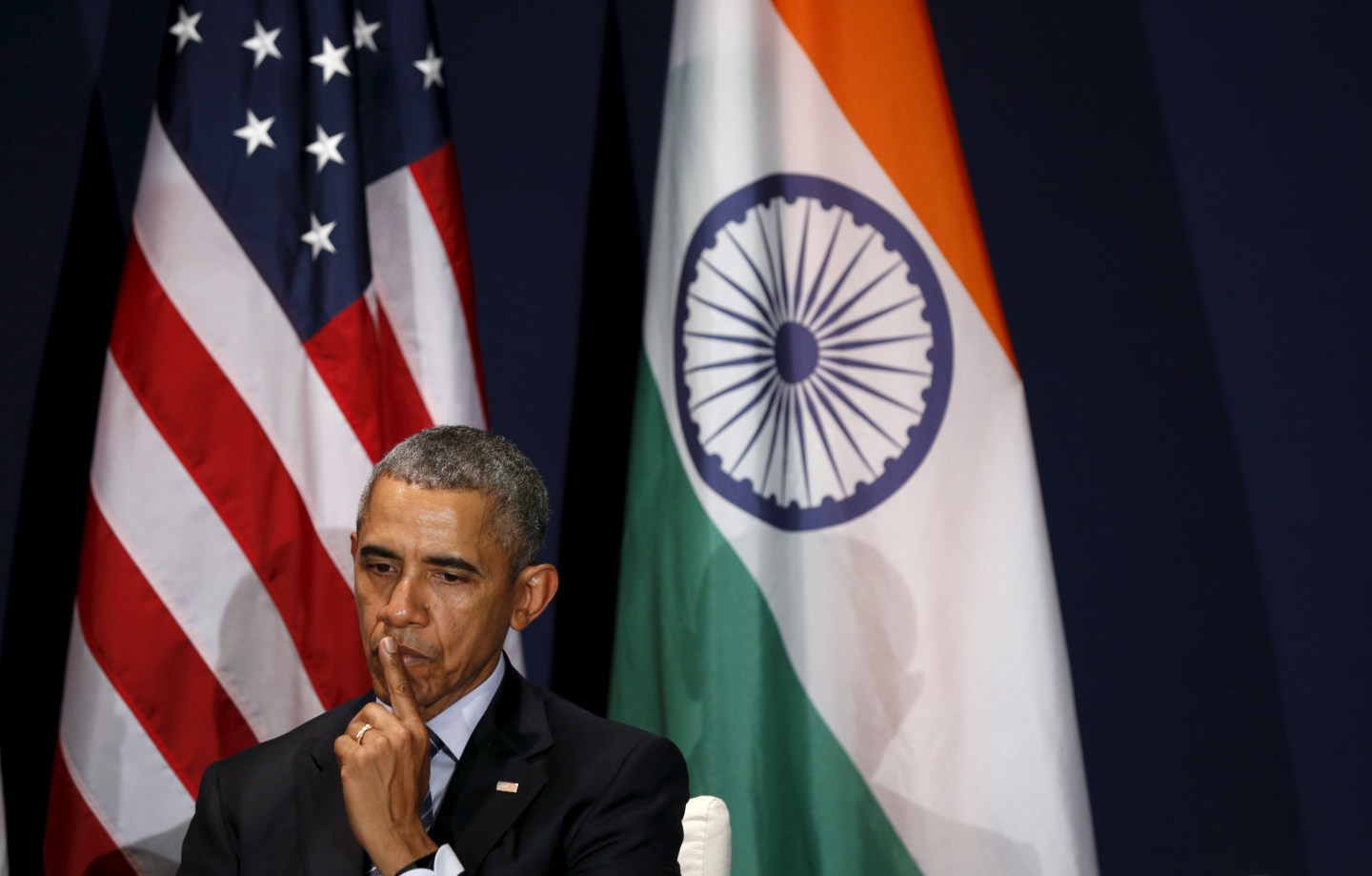Congressional Republicans will be aiming spitballs across the Atlantic as President Obama tries to negotiate an international climate accord in Paris this week.
But the GOP may find its range from Capitol Hill frustratingly limited. That’s by design: The Obama administration effectively gave up on moving its environmental agenda through Congress after its push for a massive climate package collapsed in the Senate back in 2010. Instead, the White House since has sought to end-run lawmakers by pursuing its clean energy goals through executive action.
The Obama administration has treaded carefully in the lead up to the Paris summit, emphasizing that whatever it produces will not be legally binding. Any agreement is “definitely not going to be a treaty,” Secretary of State John Kerry told the Financial Times last month.
The distinction matters because a treaty would require two-thirds approval in the Senate, which the administration knows it can’t secure. That means a future president could walk away from any U.S. Commitment to reduce carbon emissions that result from the talks. But it also circumscribes the ability of Republicans in Congress to challenge such a commitment in the immediate term.
A handful of Senators — Republican Sens. Jim Inhofe (Okla.) And Roy Blunt (Mo.) And Democratic Sen. Joe Manchin (W.Va.) — have teamed up behind a so-called sense-of-the-Senate resolution demanding the president offer the chamber the chance to weigh in on any agreement. But that proposal, which hasn’t yet been scheduled for a vote, has as little punch as its name implies. It would mostly serve to put moderate Democrats in an awkward spot and potentially discomfit the White House. Nine Senate Democrats broke ranks earlier this year to back a bill authorizing construction of the Keystone XL pipeline — a roster that could reassemble for the Paris resolution.
Meanwhile, House Republicans are poised to pass a pair of bills to repeal the Obama administration’s furthest-reaching executive action on climate, new Environmental Protection Agency rules curbing power-plant emissions. Those initiatives, too, stand a slim chance of shaping policy. Obama would veto any such threat to the cornerstone of his environmental legacy, and Republicans would almost certainly fall short of the two-thirds margin to override.
“They don’t have the votes to override the veto,” says Frank Maisano, an energy industry consultant with Bracewell & Giuliani in Washington. “But I do think it’s important the Congress continue to put the president on notice that they have to be involved in the process.”
To that end, Republicans can use their control of the federal pursestrings to hobble American investment in two programs the White House hopes to push in Paris. One, a United Nations initiative called the Green Climate Fund, aims to help developing nations tackle their own emissions. The administration has pledged $3 billion toward it and is asking for a $500 million downpayment now. And separately, administration negotiators will be seeking to wrangle funds for enhanced research and development into clean-energy technology.
The gulf between the parties on the issue is reflected in and reinforced by the sentiments of their voting bases. While a majority of Americans agree climate change is a serious problem, the partisan split on what to do about it is vast. Among Democrats, for example, 65 percent want the federal government to do more about it, while fewer than a quarter of Republicans agree.












